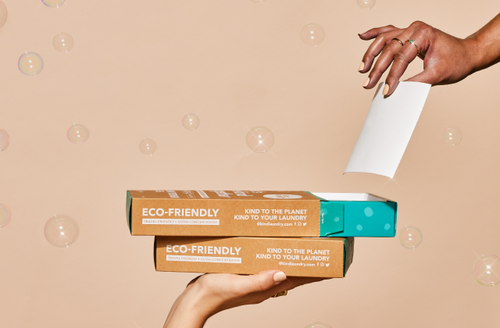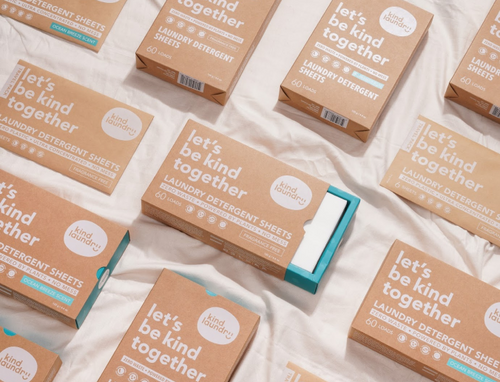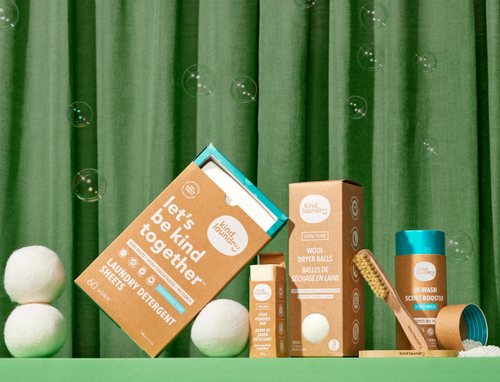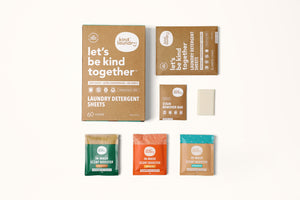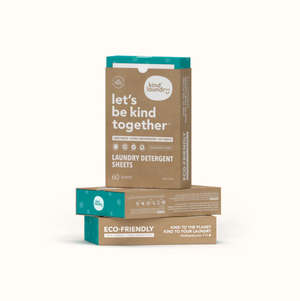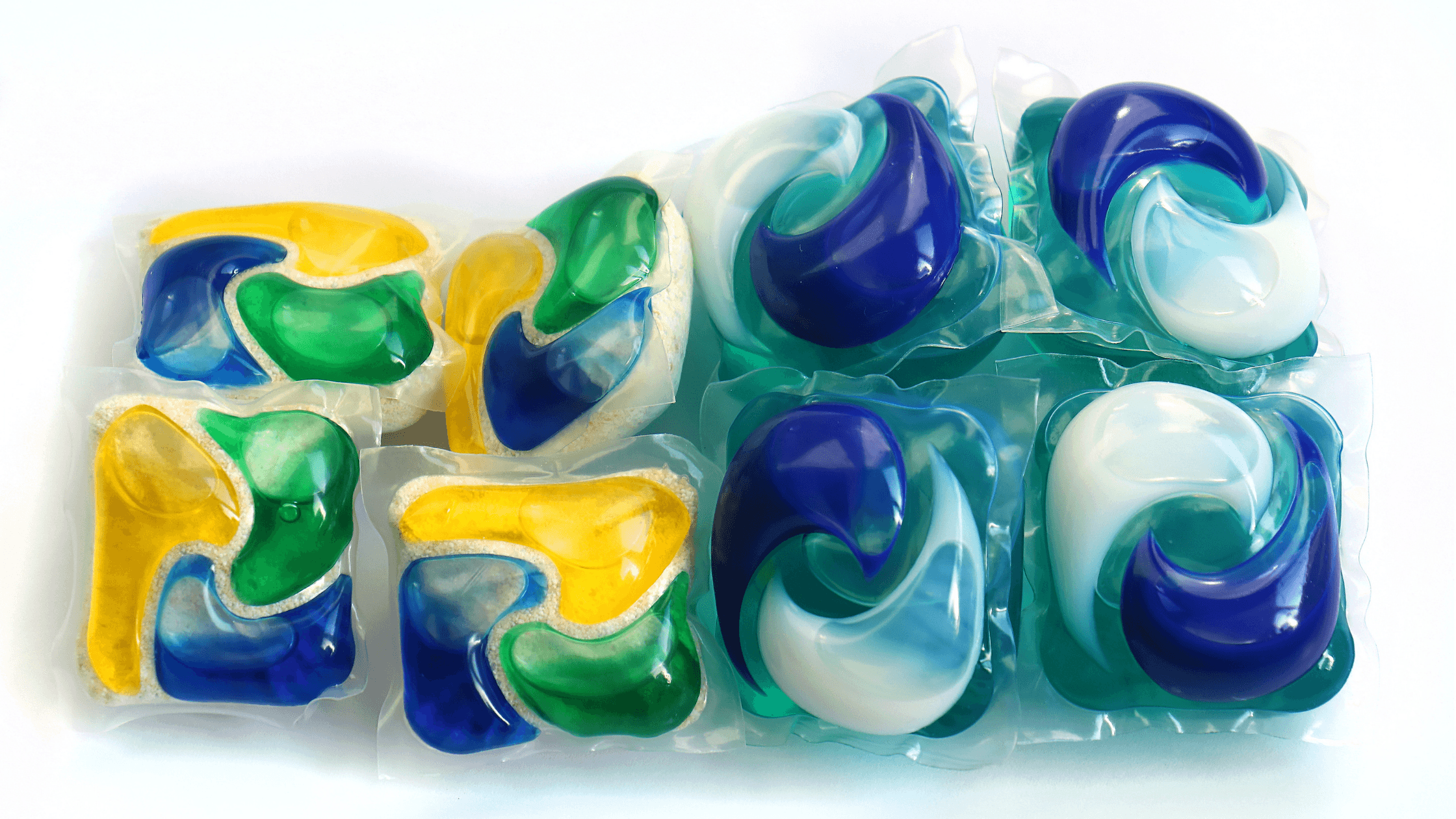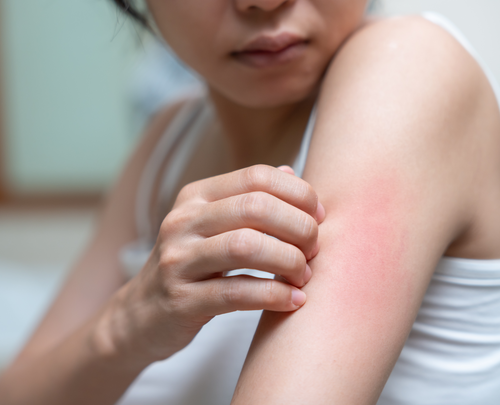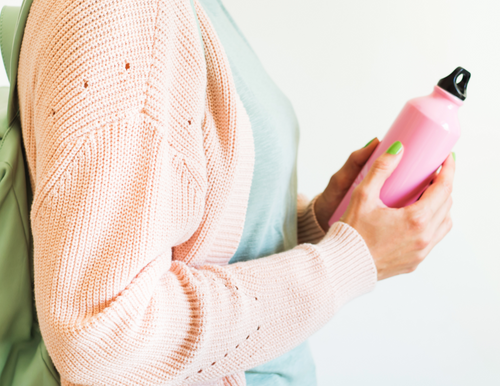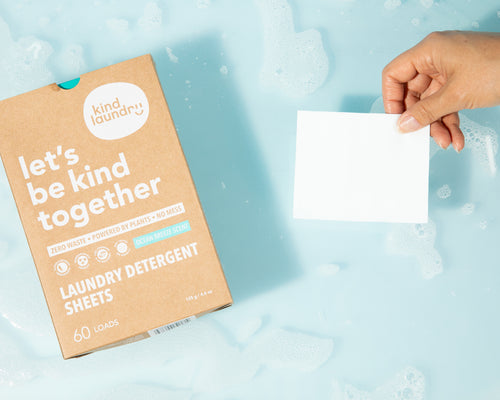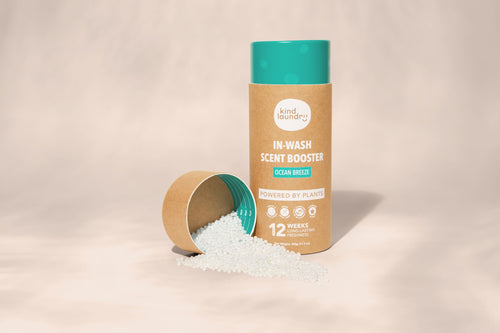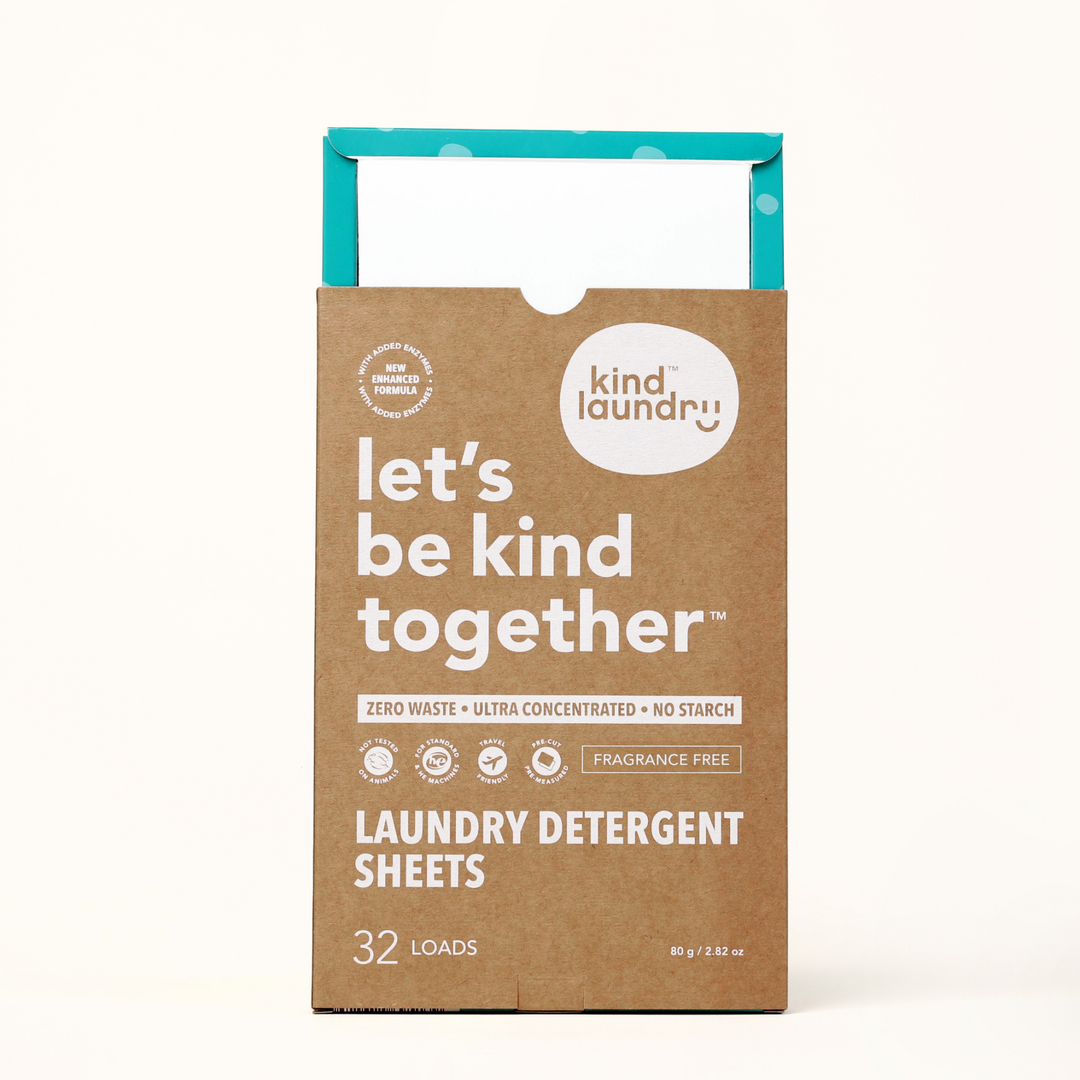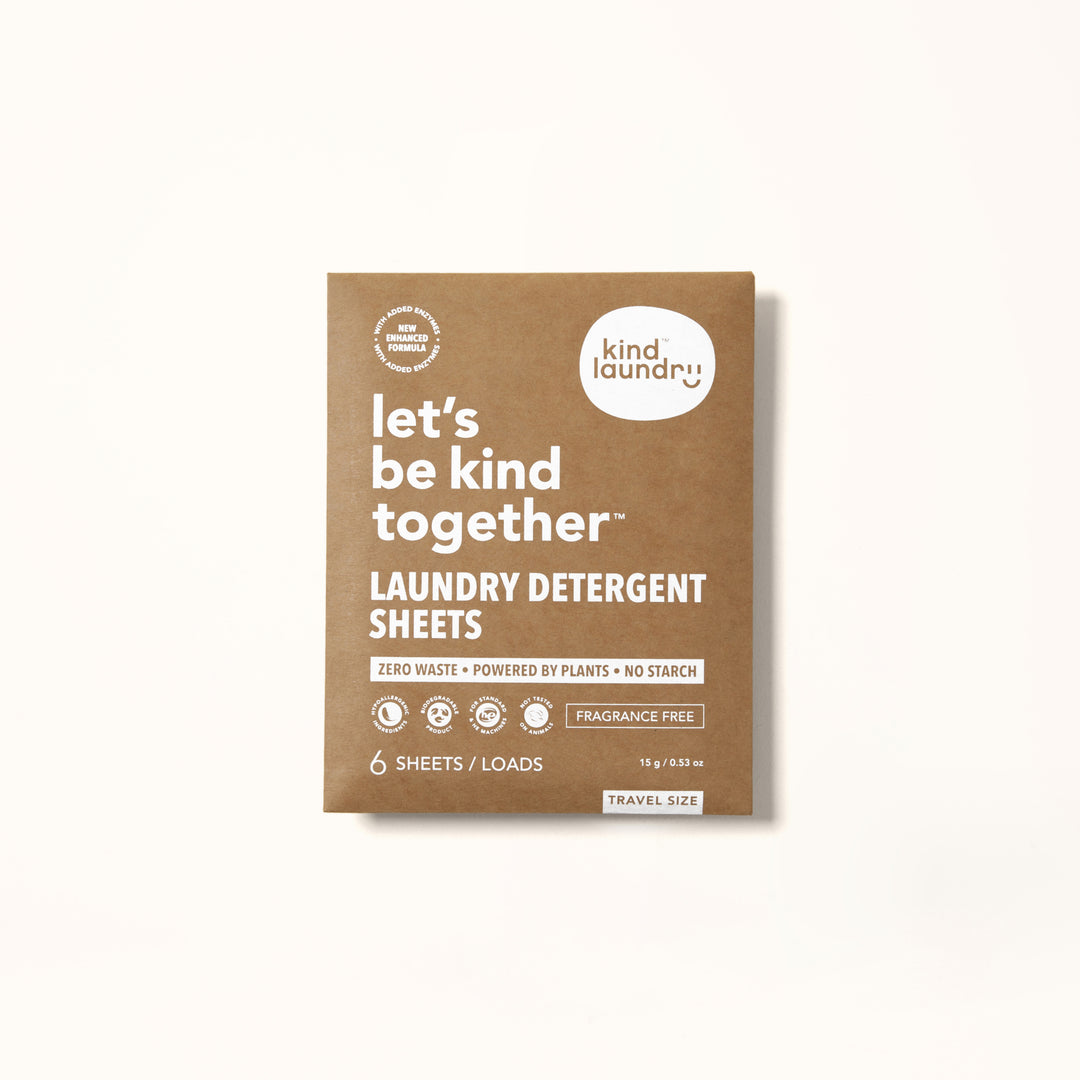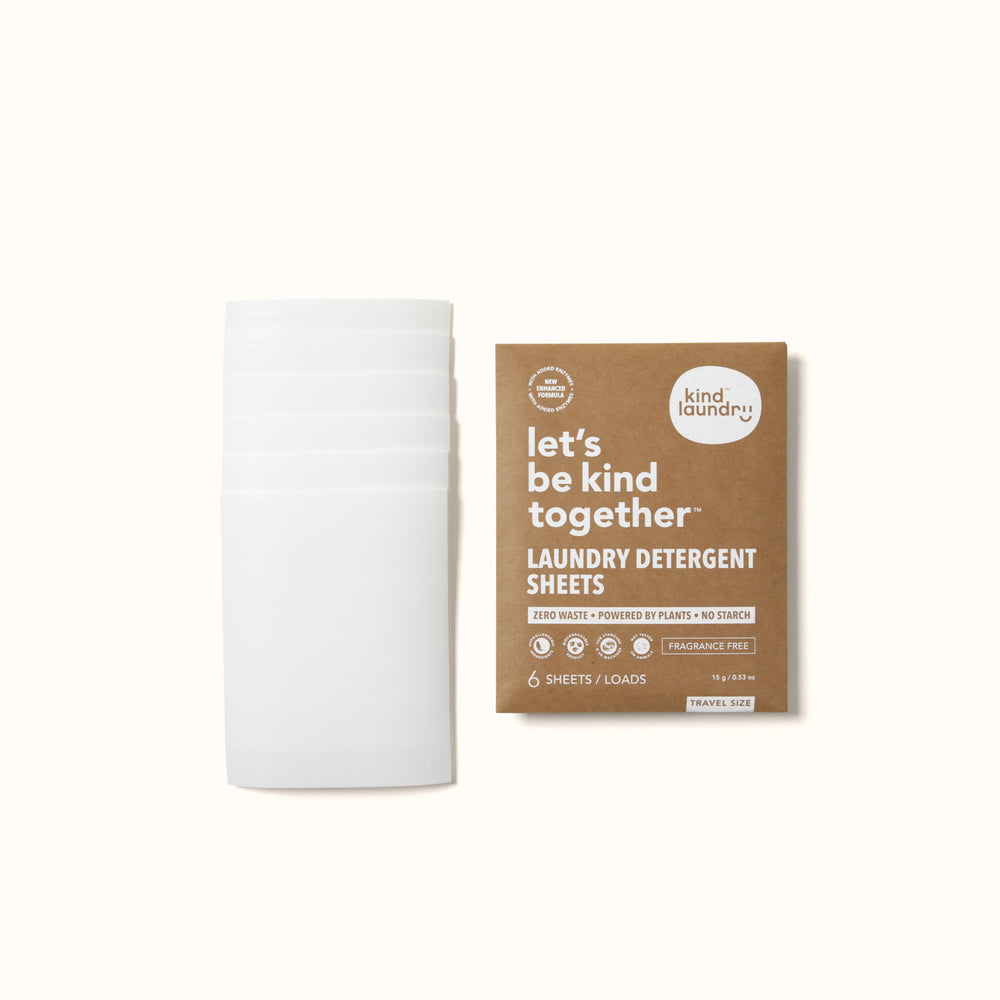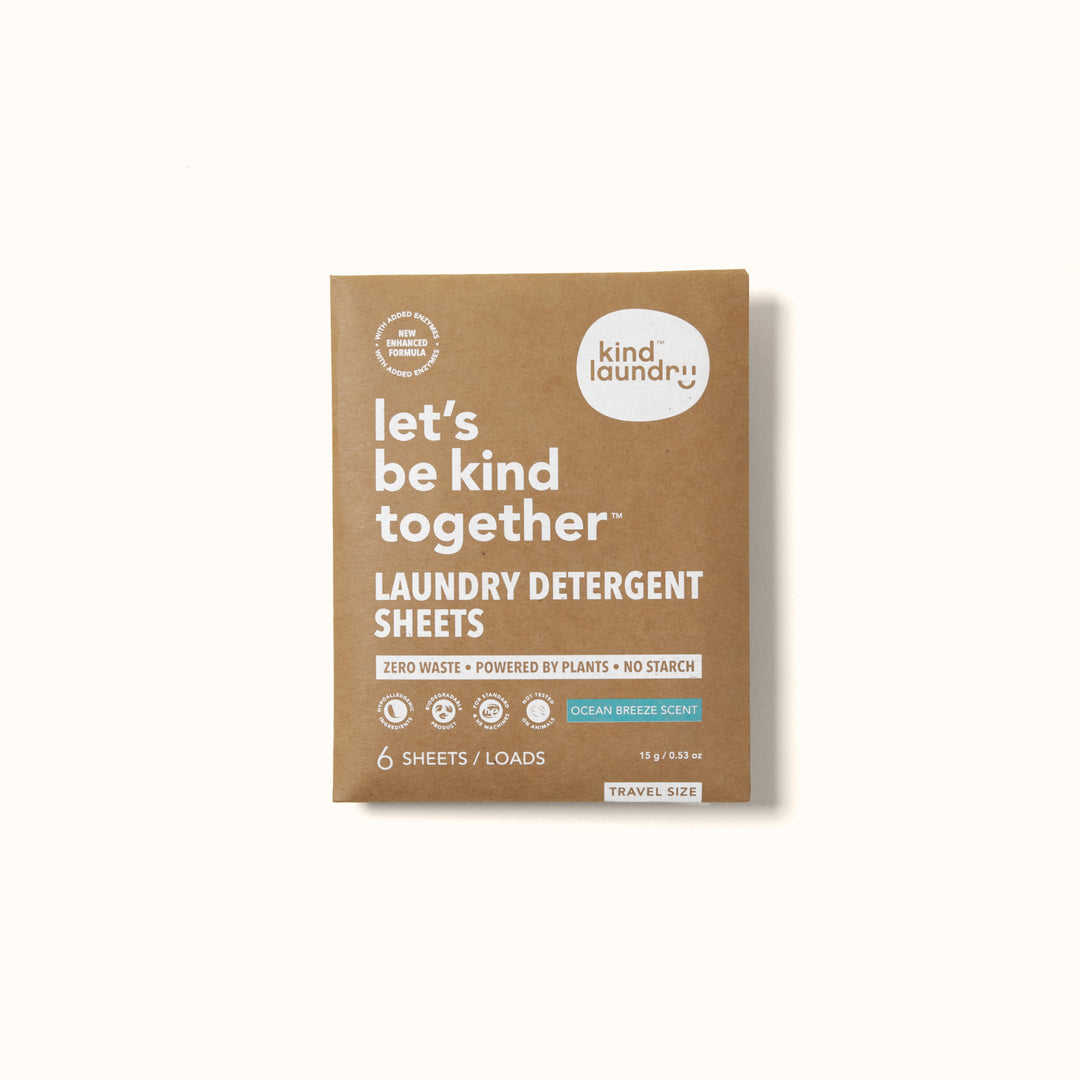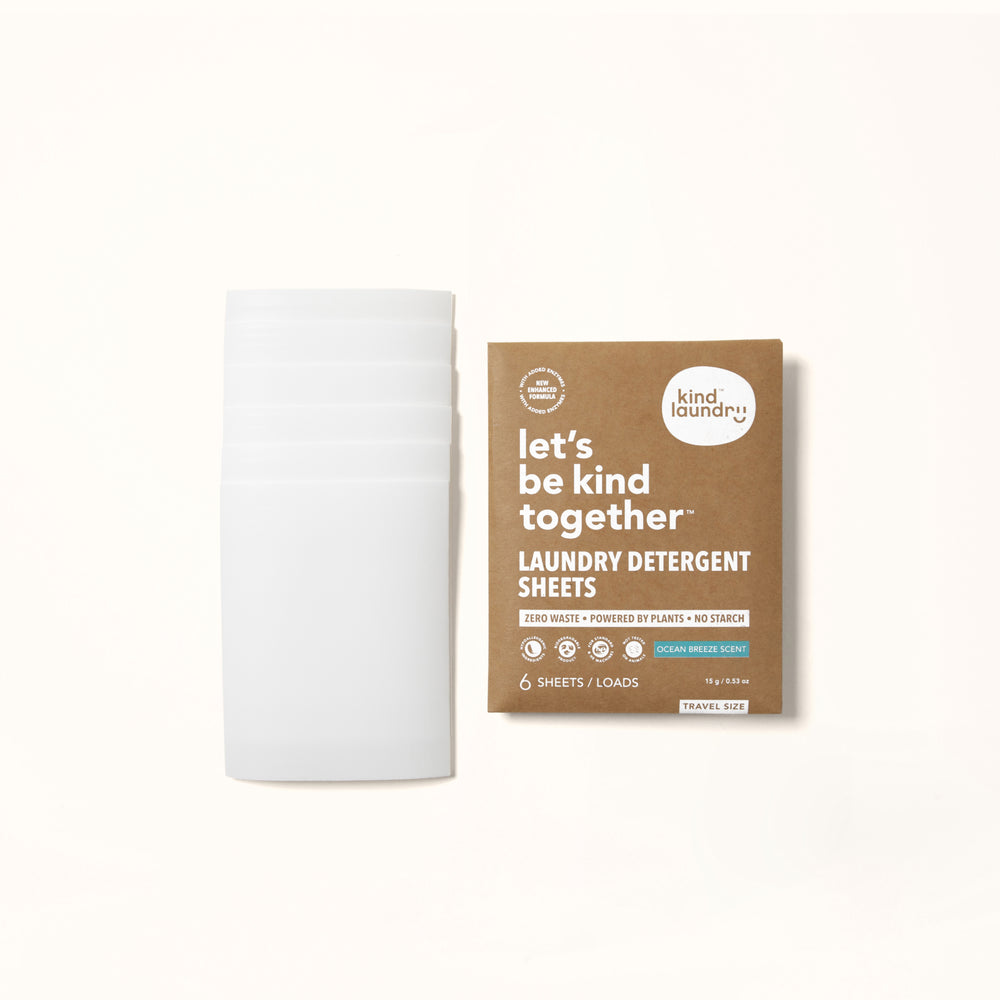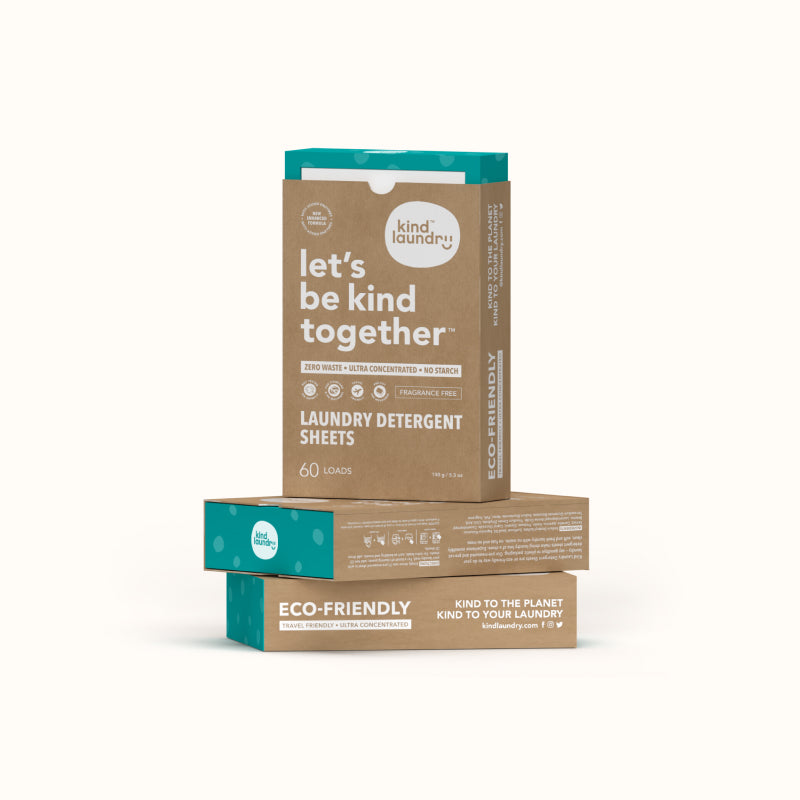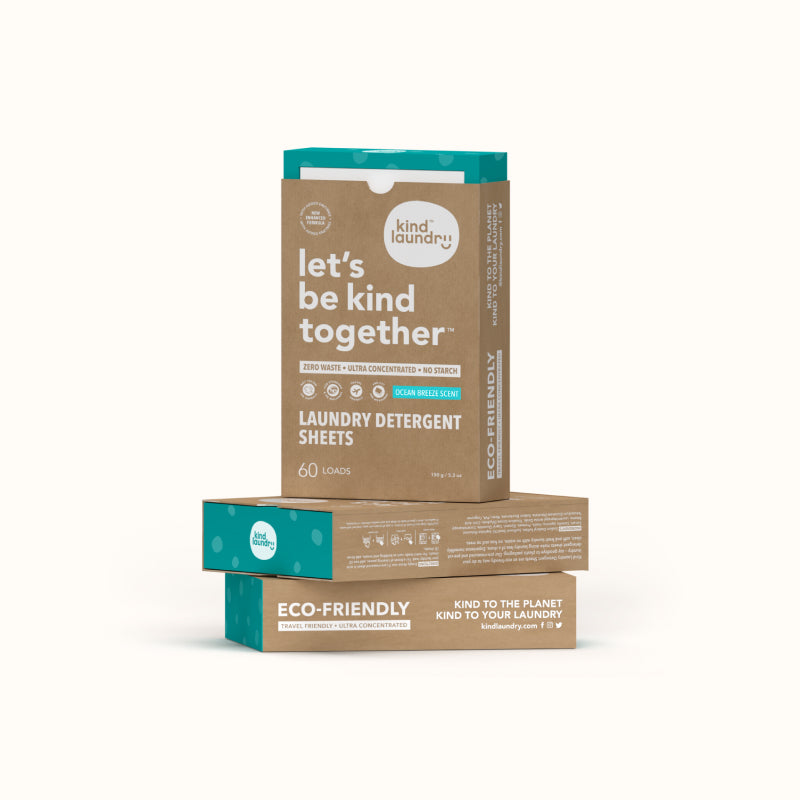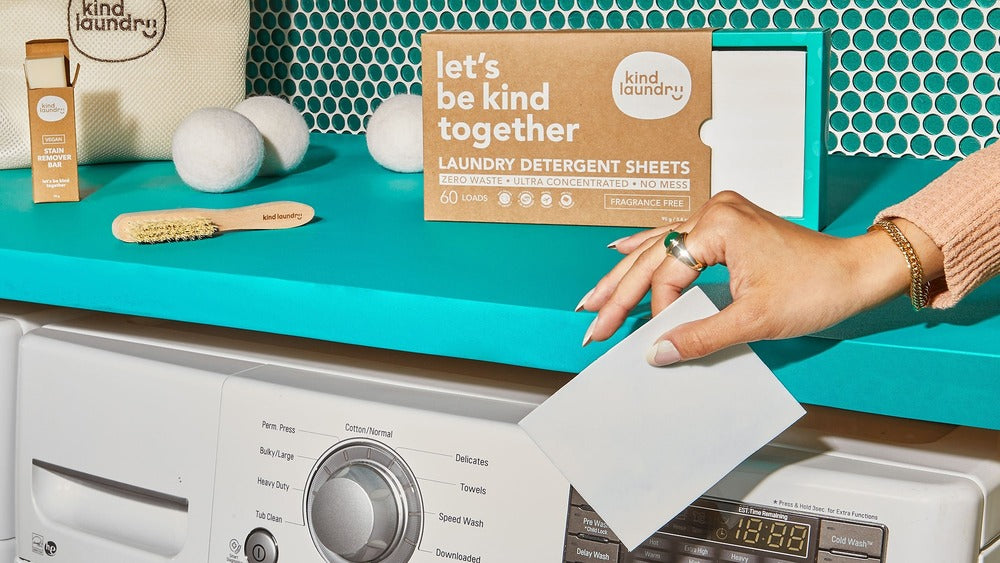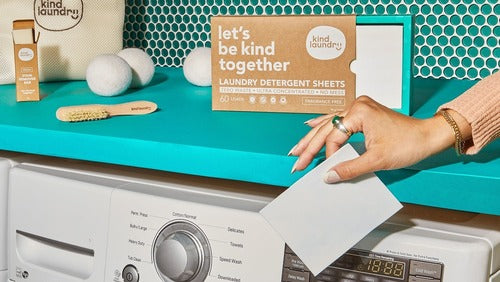Did you realize that the environment is paying a hefty price for the convenience of your laundry detergent? Detergent is one of the single biggest pollutants to our planet. Washed into waterways, detergent residues contribute to aquatic toxicity at alarming levels and have a far-reaching environmental impact.
To help you better understand why you should skip detergent pods, we will answer a few questions such as ‘what makes detergent pods so harmful’,’ why are they so bad for the environment’ and share some more eco-friendly alternatives to look for.
What are Detergent Pods?
Detergent pods, also known as packs or liquitabs, are water-soluble pouches of ultra-concentrated laundry detergent. They contain around 10% water compared with 50% water or higher in liquid detergents.
Detergent pods are designed to eliminate the need for measuring out liquid detergent or powders. You simply throw the pod into your washing machine. They usually come in a plastic container which may or may not be recyclable.
Are Detergent Pods Bad for the Environment?
Yes, detergent pods are extremely harmful to the environment. The reality is, that despite the appeal of their convenience, detergent pods contain a very damaging chemical cocktail. This makes them not only detrimental to the environment, but also to you and your family. Its impact lasts well beyond your wash cycle.
In most mainstream detergent pods, such as Tide pods, there is a huge number of ingredients, some of which manufacturers are not even required to disclose. The five most concerning are:
- Phosphates - These are particularly damaging to the marine environment when dispersed in wastewater from your wash. They create algae blooms that starve marine flora and fauna of oxygen.
- Bleach - often used to brighten whites, its fumes cause respiratory distress and on contact with skin and eyes and it can cause caustic burns. This applies to both human and marine life.
- Formaldehyde - A chemical usually associated with the preservation of dead bodies, this ingredient as classified by the EPA, is a class B1 probable carcinogen. This means it has been linked with an increased risk of cancer. In the marine biome is has been linked to reproductive impairment.
- Ammonium Sulfate and Ammonium Quaternary Sanitizers - harsh cleansing agents that are corrosive. They can cause eye, skin, and lung damage even with minimal exposure to both human and marine life.
- Dioxane (1,4 Dioxane/ Diethylene Dioxide/ Diethylene Ether/ Dioxan) is quite possibly one of the worst additives. Dioxane is also a carcinogen and has been known to pose a combustion risk. Exposure in marine environments impairs the central nervous system, eyes, and skin/scales of marine animals.
Did you know that detergent pods are also responsible for a rising number of household poisonings? In just one year between 2012 and 2013, poison control centers in the USA reported over 7,000 cases of young children eating laundry pods. This is likely due to their heavy fragrance and bright colors making them look deceptively like a delicious sweet to enjoy. Maybe one more reason why detergent pods should not be on your shopping list.
Eco-Friendly Alternatives to Detergent Pods?
The good news is you do not have to sacrifice convenience or cleaning power to be environmentally friendly.
There are several significantly more eco-friendly laundry products compared to detergent pods such as:

Just like detergent pods, the cleaning power of laundry sheets is suspended in both hot and cold water soluble resin, so you get the same convenience as with the pod. But the packaging of laundry sheets is completely compostable and there is zero palm oil. This sets them apart from detergent pods and other "green" solutions out there, making them a great environmentally sound choice.
Check out these eco-friendly, laundry detergent sheets that contain a total of only four naturally derived, non-toxic ingredients.

These naturally occurring nuts grow on a tree found in the Himalayas. When agitated in water, they produce saponin, which is a non-synthetic and biodegradable surfactant (detergent). The downside is soap nuts work best in hot water which creates a higher carbon footprint.

Simply mix equal parts white vinegar and soap and you’ve got an environmentally friendly laundry detergent. The downside is this option comes in a plastic bottle, which means it is not zero waste.
Toxin-free laundry powder in a biodegradable film. These are closest to a detergent pod replacement. Unfortunately, they contain palm oil - which even though responsibly sourced does not encourage the disuse of it globally.
The Choice Is Yours!
As cliche as it sounds, Captain Planet was right, the power is yours. Where you spend your dollars and what you choose to buy as a consumer directly impacts our health and our environment. Your choice of detergent pods may not seem like a big deal, but even a simple switch to an eco-friendly detergent, such as laundry sheets, can make a huge difference.
So next time you’re buying laundry detergent, choose well and choose to be kind to our environment.
